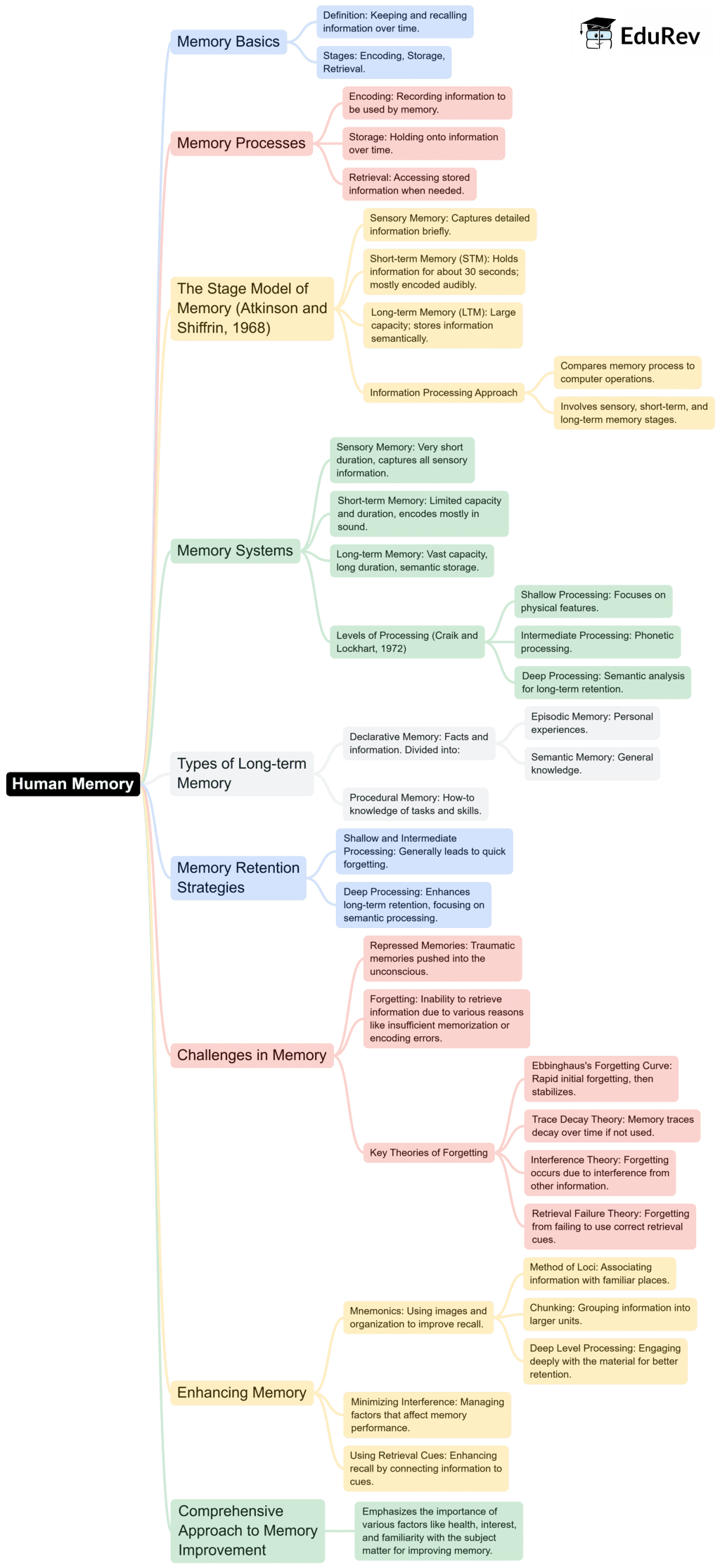Humanities/Arts Exam > Humanities/Arts Notes > Psychology Class 11 > Mind Map: Human Memory
Mind Map: Human Memory | Psychology Class 11 - Humanities/Arts PDF Download

The document Mind Map: Human Memory | Psychology Class 11 - Humanities/Arts is a part of the Humanities/Arts Course Psychology Class 11.
All you need of Humanities/Arts at this link: Humanities/Arts
|
43 videos|88 docs|18 tests
|
FAQs on Mind Map: Human Memory - Psychology Class 11 - Humanities/Arts
| 1. What are the different types of human memory? |  |
Ans. Human memory is commonly categorized into three types: sensory memory, short-term memory, and long-term memory. Sensory memory involves the initial recording of sensory information, which lasts only for a few seconds. Short-term memory holds information temporarily for about 20-30 seconds and can manage a limited amount of information. Long-term memory, on the other hand, can store information for extended periods, ranging from days to years, and is subdivided into explicit (declarative) memory and implicit (non-declarative) memory.
| 2. How does memory encoding work? |  |
Ans. Memory encoding is the process of transforming sensory information into a form that can be stored in the brain. This process involves several stages, including attention, where we focus on specific information; elaboration, where we relate new information to existing knowledge; and visualization, where we create mental images. Successful encoding is crucial for effective retrieval of memories later on.
| 3. What factors can affect human memory retention? |  |
Ans. Various factors can influence memory retention, including emotional state, stress levels, sleep quality, and age. Strong emotions can enhance memory retention, while high stress can impair it. Additionally, proper sleep is essential for memory consolidation, and as individuals age, cognitive decline may affect memory capabilities, making it more challenging to retain new information.
| 4. What is the role of rehearsal in memory? |  |
Ans. Rehearsal plays a significant role in memory by helping to reinforce information and enhance retention. There are two types of rehearsal: maintenance rehearsal, which involves repeating information to keep it in short-term memory, and elaborative rehearsal, which involves connecting new information to existing knowledge for better long-term storage. Both types are essential for effective memory formation.
| 5. How can memory improvement techniques enhance recall? |  |
Ans. Memory improvement techniques, such as mnemonic devices, visualization, and the method of loci, can significantly enhance recall. Mnemonic devices create associations that simplify recall, while visualization helps create vivid mental images that make information more memorable. The method of loci involves associating information with specific locations in a familiar environment, facilitating easier retrieval during recall.
Related Searches
















